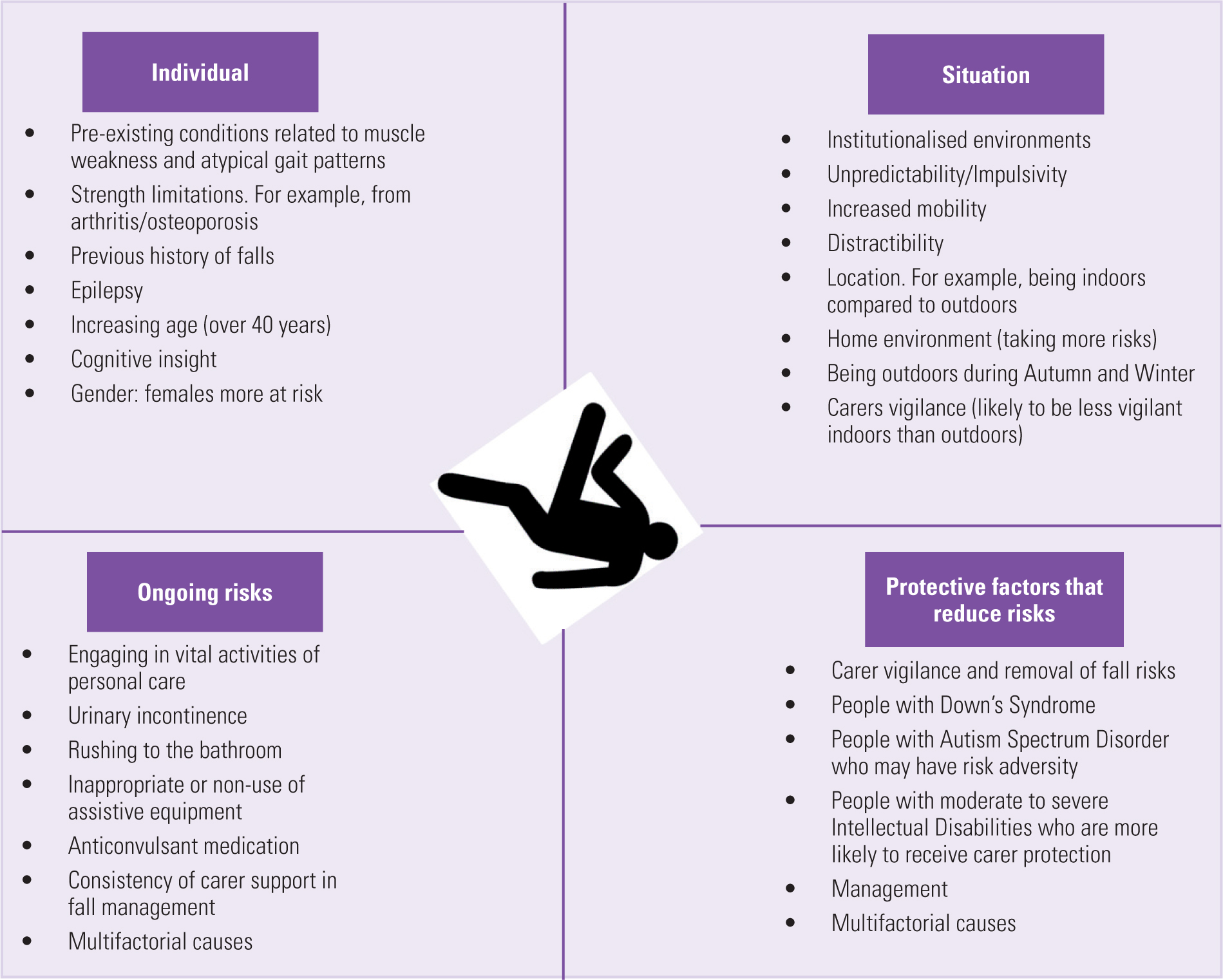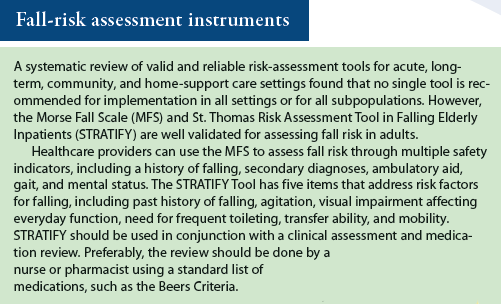The smart Trick of Dementia Fall Risk That Nobody is Discussing
Table of ContentsOur Dementia Fall Risk IdeasThe Buzz on Dementia Fall RiskThe smart Trick of Dementia Fall Risk That Nobody is Talking AboutDementia Fall Risk Things To Know Before You BuyThings about Dementia Fall Risk
Evaluating loss danger aids the whole health care team develop a more secure setting for each client. Make sure that there is an assigned location in your medical charting system where team can document/reference scores and record pertinent notes associated with drop avoidance. The Johns Hopkins Loss Danger Assessment Tool is among several tools your staff can make use of to aid protect against adverse clinical events.Client drops in medical facilities prevail and incapacitating negative events that persist despite decades of effort to lessen them. Improving interaction throughout the evaluating nurse, care team, patient, and client's most involved family and friends may enhance loss avoidance initiatives. A group at Brigham and Female's Medical facility in Boston, Massachusetts, sought to develop a standard autumn avoidance program that centered around boosted interaction and client and family members interaction.

The technology group emphasized that successful application depends on client and team buy-in, integration of the program right into existing workflows, and integrity to program processes. The team noted that they are grappling with exactly how to guarantee continuity in program implementation throughout durations of crisis. Throughout the COVID-19 pandemic, as an example, an increase in inpatient drops was related to constraints in person interaction in addition to constraints on visitation.
Dementia Fall Risk Fundamentals Explained
These incidents are usually taken into consideration avoidable. To carry out the intervention, organizations require the following: Access to Loss TIPS sources Loss suggestions training and re-training for nursing and non-nursing team, consisting of brand-new registered nurses Nursing operations that enable client and household involvement to conduct the falls assessment, make certain usage of the prevention plan, and conduct patient-level audits.
The outcomes can be very harmful, commonly speeding up patient decline and causing longer hospital keeps. One research estimated stays boosted an extra 12 in-patient days after a person loss. The Fall TIPS Program is based on appealing people and their family/loved ones across 3 primary processes: analysis, customized preventative interventions, and bookkeeping to ensure that clients are participated in the three-step autumn avoidance process.
The person evaluation is based on the Morse Autumn Range, which is a verified fall risk evaluation tool for in-patient hospital settings. The range consists of the six most typical reasons clients in health centers fall: the patient fall background, risky problems (including polypharmacy), use IVs and various other exterior devices, psychological status, gait, and mobility.
Each threat factor links with several actionable evidence-based interventions. The nurse produces a plan that includes the treatments and shows up to the care team, person, and family on a laminated poster or printed aesthetic aid. Registered nurses create the plan while fulfilling with the patient and the person's family this members.
Excitement About Dementia Fall Risk
The poster acts as a communication tool with various other members of the patient's treatment team. Dementia Fall Risk. The audit part of the program includes assessing the client's knowledge of their danger aspects why not try these out and prevention plan at the unit and medical facility levels. Nurse champs conduct at the very least 5 private interviews a month with people and their family members to look for understanding of the autumn avoidance plan

An approximated 30% of these drops result in injuries, which can range in severity. Unlike various other adverse occasions that need a standardized scientific reaction, autumn prevention depends highly on the requirements of the individual.
About Dementia Fall Risk

Based upon auditing outcomes, one site had 86% conformity and 2 websites had more than 95% conformity. A cost-benefit analysis of the Loss pointers program in eight healthcare facilities approximated that the program expense $0.88 per client to implement and led to financial savings of $8,500 per 1000 patient-days in direct expenses associated with the prevention of 567 tips over 3 years and eight months.
According to the technology team, organizations thinking about implementing the program must perform a preparedness evaluation and falls prevention gaps analysis. 8 In addition, organizations need to make certain the required infrastructure and workflows for application and create an execution plan. If one exists, the company's Fall Avoidance Job Pressure ought to be entailed in preparation.
Some Known Facts About Dementia Fall Risk.
To start, organizations ought to guarantee conclusion of training components by nurses and nursing assistants - Dementia Fall Risk. Health center team should evaluate, based upon the demands of a health center, whether to make use of an electronic wellness document printout or paper version of the fall prevention plan. Applying teams should recruit and train nurse champions and develop procedures for bookkeeping and reporting on autumn data
Personnel need to be involved in the process of revamping the workflow to involve clients and family in the assessment and avoidance strategy process. Equipment must be in area to ensure that devices can recognize why a fall happened and remediate the reason. Much more particularly, registered nurses ought to have networks to offer ongoing responses to visit here both staff and unit leadership so they can adjust and boost fall prevention process and connect systemic issues.
Comments on “Everything about Dementia Fall Risk”